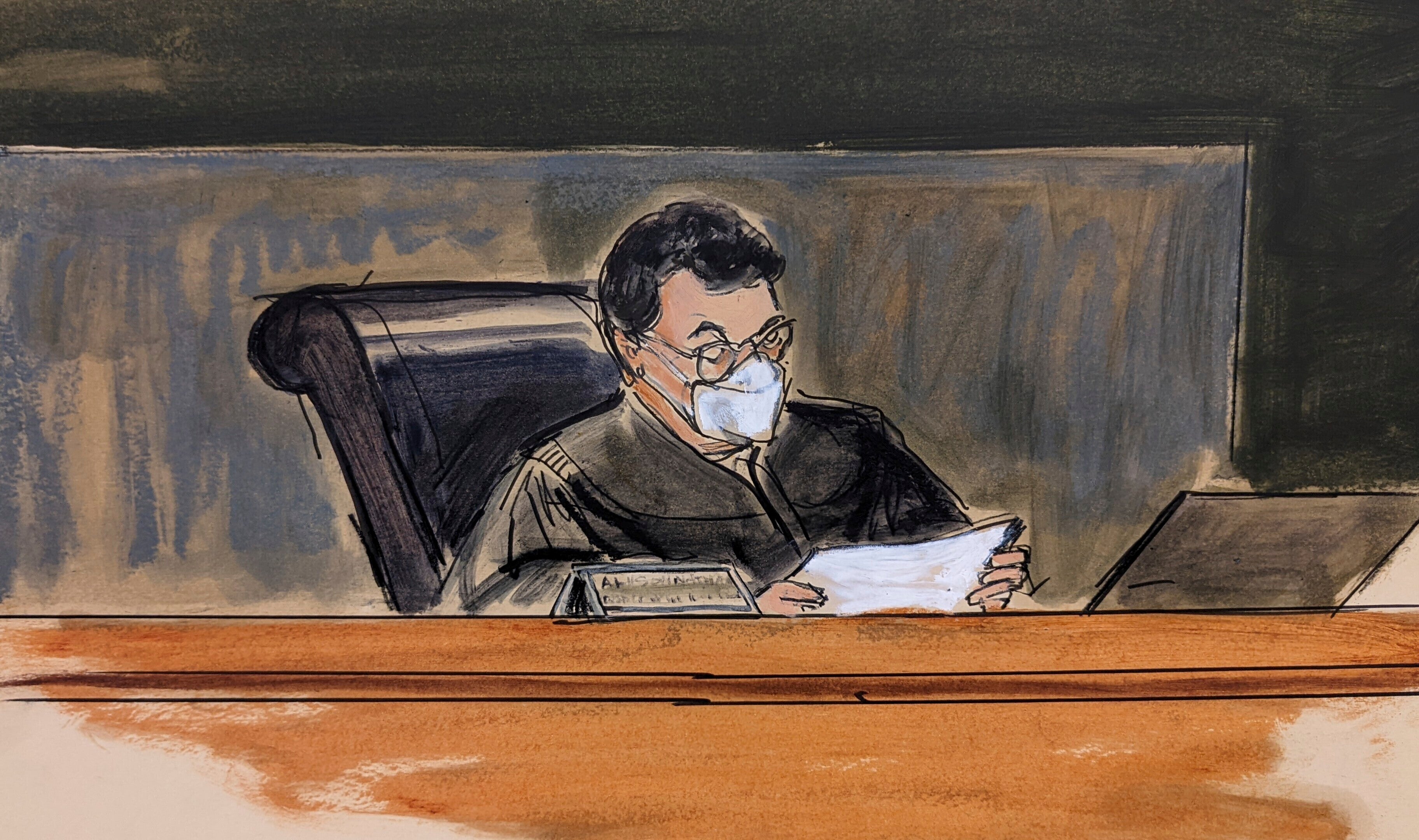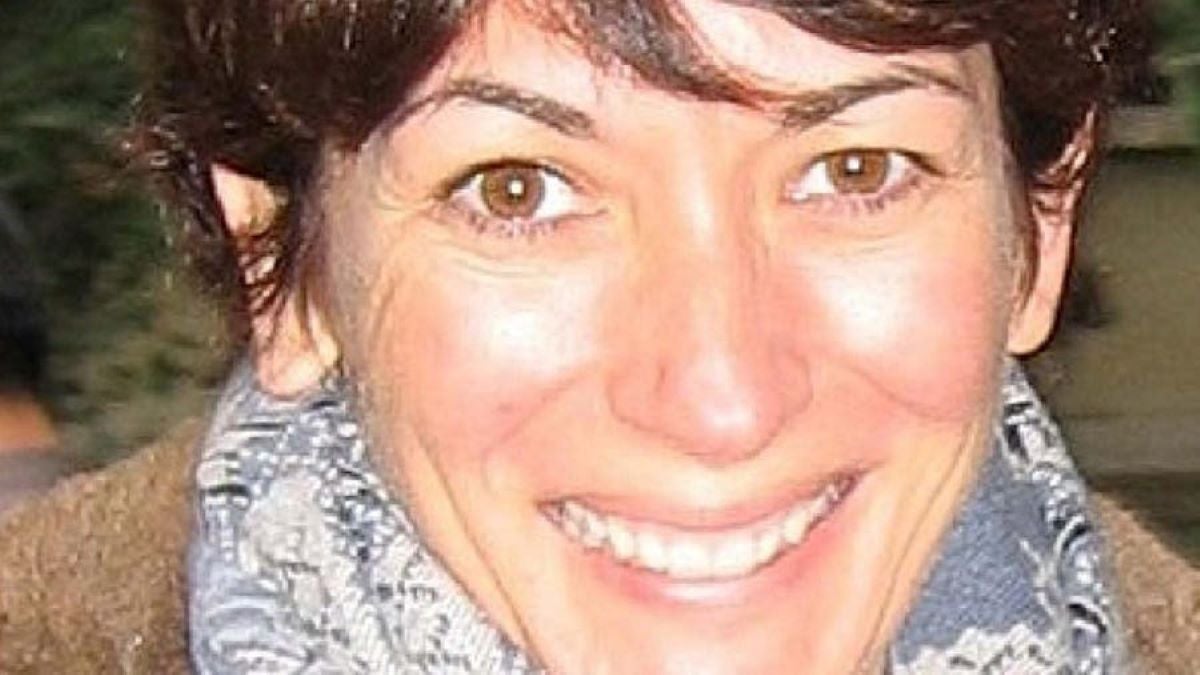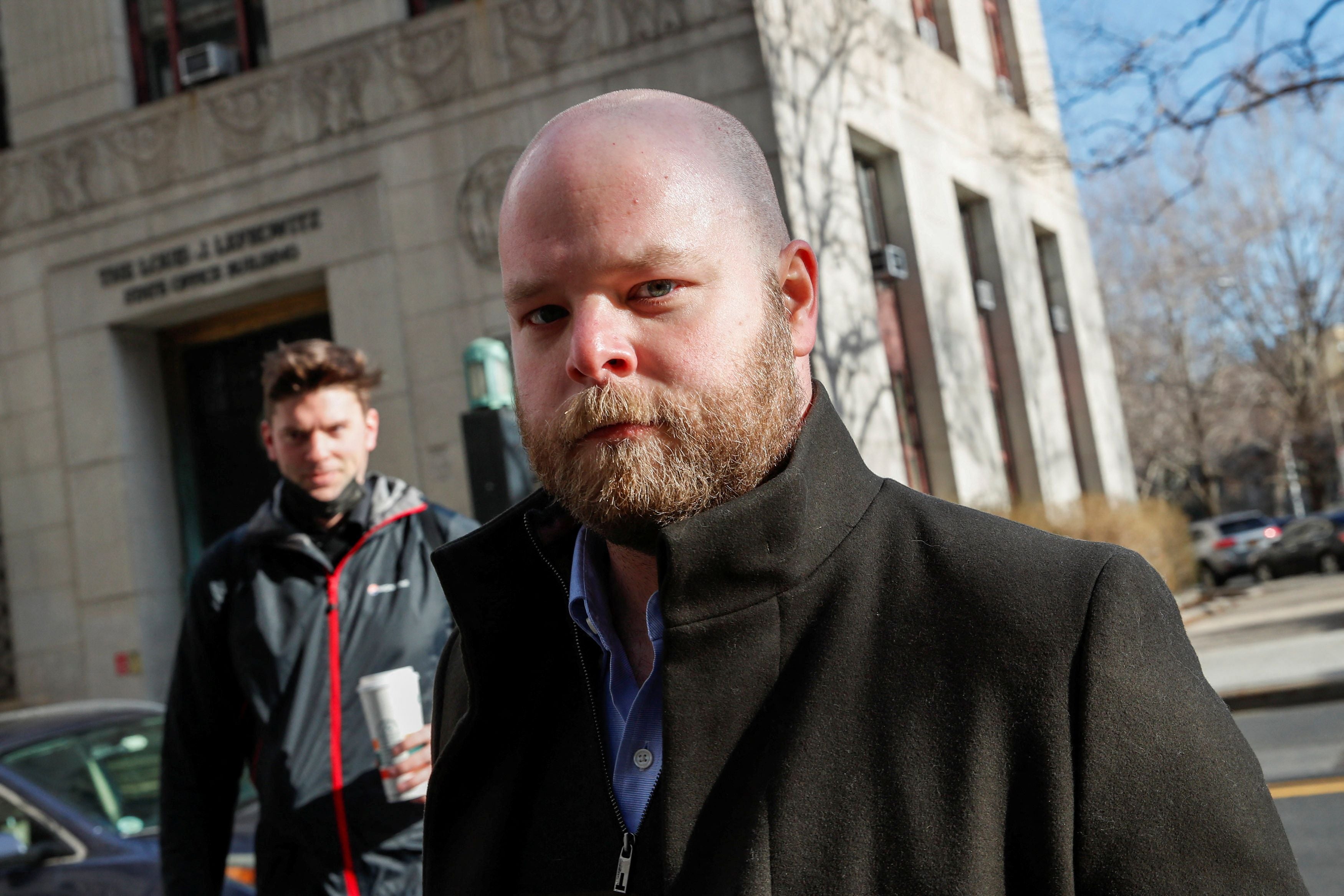Ghislaine Maxwell juror blames ‘distractions’ for his failure to disclose abuse history, but will his ‘honest mistake’ win her a new trial?
‘I didn’t lie to get on this jury. If I lied deliberately, I wouldn’t have told a soul’
Ghislaine Maxwell juror Scotty David blamed a recent relationship break up and noisy jury room for incorrectly answering questions about his history of sexual abuse during a pre-trial questionnaire.
Scotty David, 35, said he had “flown through” the survey and had made an “honest mistake” as he was quizzed for over an hour by Judge Alison Nathan during a hearing to determine whether Maxwell should be granted a retrial at the Manhattan federal courthouse on Tuesday.
He denied he had deliberately misled the court by withholding his abuse, or that it had affected his deliberations in finding Maxwell guilty of five counts of sex-trafficking at a trial last year.
“This is one of the biggest mistakes I’ve ever made in my life and if I could go back and change everything and slow down and take my time, then I would in a heartbeat.”
Maxwell’s lawyers have argued that the failure to disclose his history, which he later discussed in media interviews, was grounds for the convictions to be dismissed and a retrial to be ordered.
Judge Nathan ordered him to testify without fear of prosecution for perjury after he was granted immunity by the Department of Justice.
In court on Tuesday, Scotty David said when he arrived for the initial jury selection on 4 November last year that there were so many people in the pool that he didn’t ever imagine he would be chosen.
After a three hour wait, he said he was sitting in a loud, bustling juror room filling out a form during voir dire. A relationship break-up three weeks earlier had combined to leave him upset and unable to focus, and he “flew through” the survey.
“I completely skimmed way too fast. I was distracted by all the noise going on all around me,” he said.
“I never thought I’d get selected for this jury. I had to get here early and wait a long time to get into the courthouse... I was super distracted. I was sat four feet from the table where people dropped in their questionnaires. I just checked OK, OK.”
“There was a lot of talking going on… I didn’t spend a lot of time thinking about it.”
Scotty David said he didn’t associate himself with being a victim of sexual abuse, and that he had put the experience behind him as part of his healing process.

The abuse had occurred when he was nine or 10 years old, and was committed by a relative and their friend, he said. The relative was no longer a part of the family, he said.
He told his mother about the abuse a few years later in high school, and she reported it to the police. But no charges were ever brought.
Earlier, he was asked whether he had followed an instructional video Judge Nathan had taped that was shown to jurors on 4 November.
“Were you concerned with following my instructions?” the judge asked.
“Absolutely not,” he replied, drawing gasps from the courtroom.
Scotty David said he first became aware that there had been questions about sexual abuse in the jury form after an article came out written for The Independent by Lucia Osborne-Crowley.
He said he only mentioned the abuse during the interview because he had wanted to describe his understanding of how historic sexual abuse could have effected the victims’ testimony.
Scotty David said he didn’t like talking about his abuse, and that he didn’t think his family would ever see the interview.
Judge Nathan quizzed him about how he could “reconcile” telling media about his history of abuse when he said he hadn’t told many people about it.
Scotty David replied that he didn’t think a “little article about a juror would be record breaking or really in the news at all”.
Scotty David denied he had tailored his answers to try to get on the jury, or that his experiences had affected his deliberations in any way.
“Were you thinking you’d personally benefit by being on the jury?” Judge Nathan asked.
“No,” Scotty David replied.
“I didn’t think this would happen. I didn’t lie to get on this jury. If I lied deliberately, I wouldn’t have told a soul.”
All potential jurors in the case had been asked to fill out a screening form during Voire Dire that asked: “Have you or a friend or family member ever been the victim of sexual harassment, sexual abuse, or sexual assault?”
Scotty David checked “No”, and later said in interviews he did not remember being asked that question.

Judge Nathan repeated the key questions to Scotty David in court on Tuesday.
After a brief sidebar with prosecutors and Maxwell’s attorneys, Judge Nathan asked Scotty David whether he had been able to follow her instructions during the trial.
He said he had followed the evidence and the judge’s instructions closely. After being told the case involved Ghislaine Maxwell, he said he thought it would be “something interesting that captures my attention”.
Judge Nathan, who barred counsel from questioning Scotty David, adjourned the hearing and called both lawyers to return to court on 15 March to brief her.
Maxwell, who was in court for the hearing, wore a dark-blue prison issue tracksuit with a long-sleeved white shirt underneath.
Unlike during her trial, when she greeted her lawyers effusively each day with a kiss and a hug, on Tuesday she took a seat next to Christian Everdell and Bobbi Sternheim without any physical embrace.

Southern District of New York District Attorney Damian Williams attended the hearing, sitting in the public gallery, as did Maxwell’s sister Isabel.
In December, Maxwell was convicted of five sex-trafficking charges in a federal courthouse in Manhattan for recruiting and grooming young girls to be abused by her former boyfriend Jeffrey Epstein.
Maxwell, who is due to be sentenced in June, faces up to 65 years in prison.
Epstein died in prison in August 2019 while awaiting trial for sex-trafficking offenses.
His death was ruled suicide by the medical examiner.
Days after the verdict was reached on 29 December, Scotty David told The Independent he had shared his experiences of sexual abuse had helped the jury believe that Maxwell’s victims were telling the truth.
“This verdict is for all the victims,” he told The Independent. “For those who testified, for those who came forward and for those who haven’t come forward. I’m glad that Maxwell has been held accountable.”




